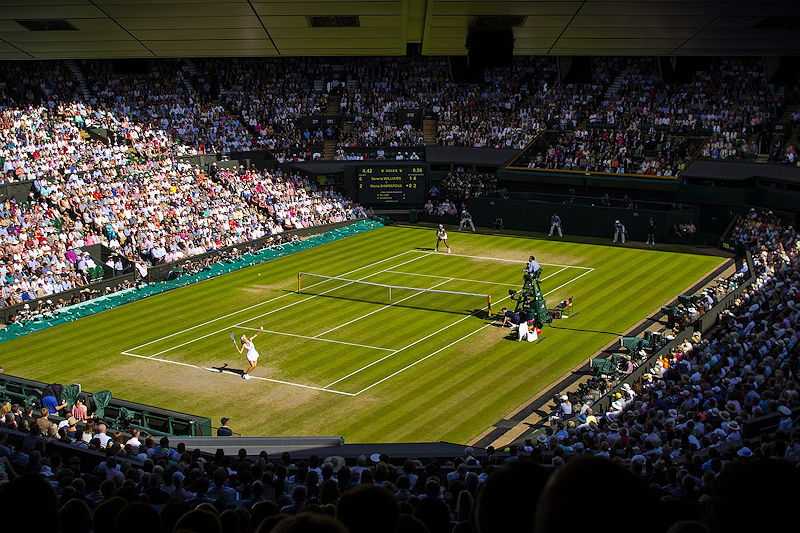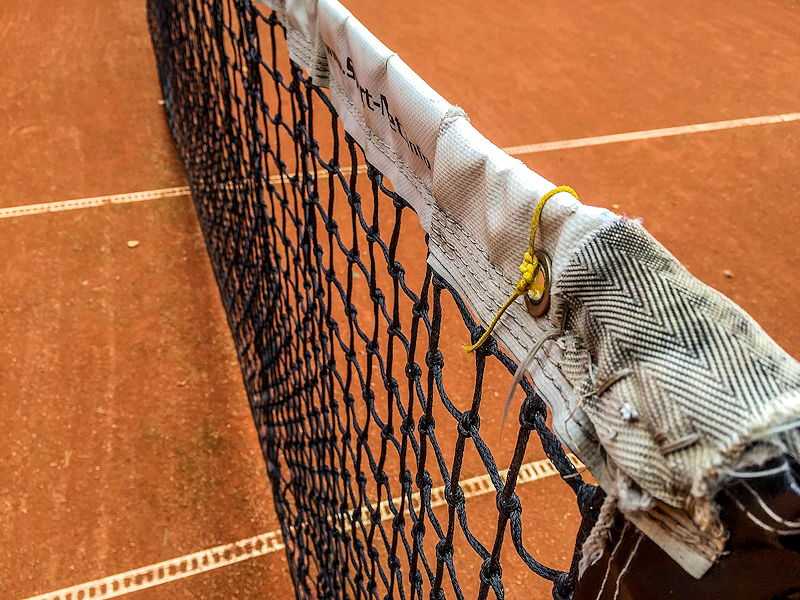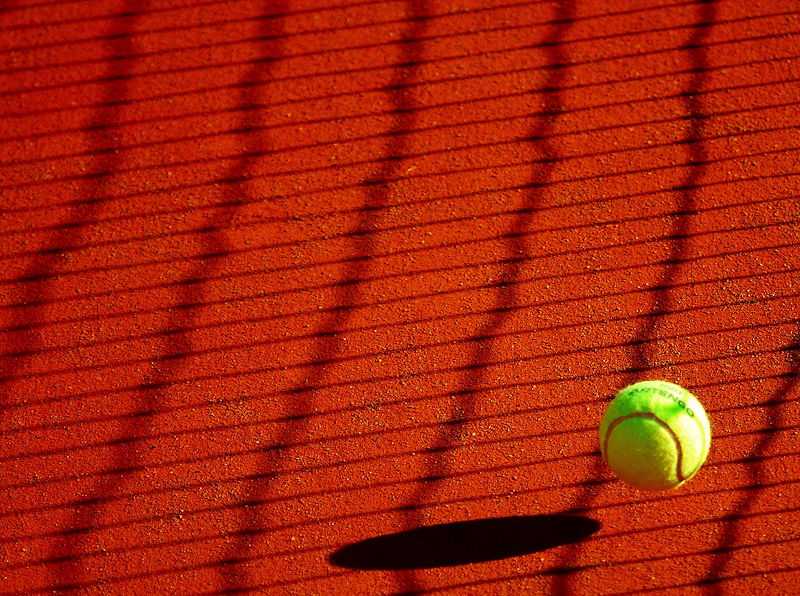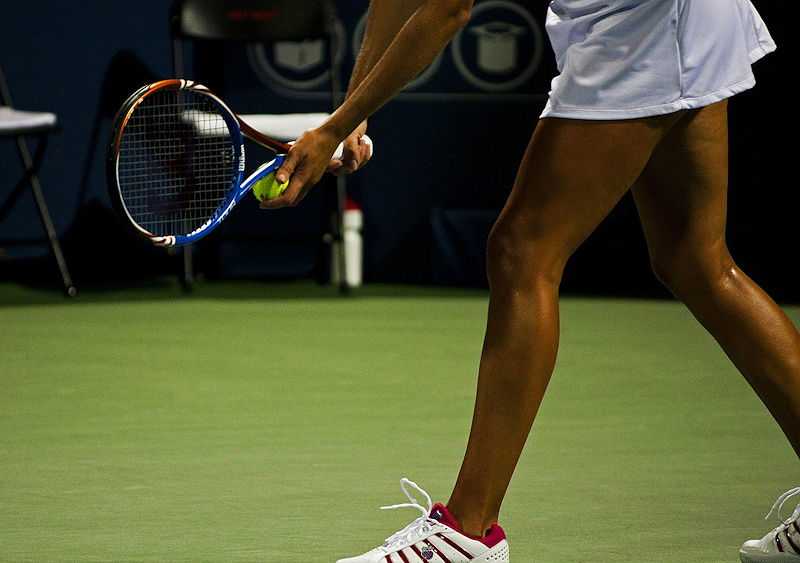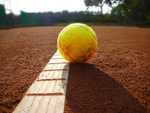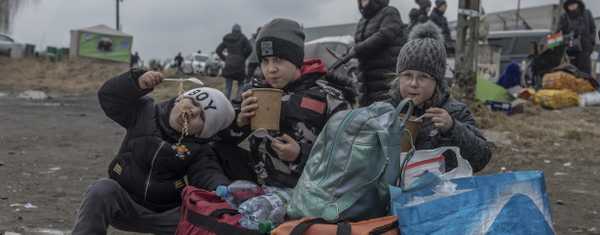1. Wade's early life
Sarah Virginia Wade was born in Bournemouth, England on 10th July 1945, the youngest of four children and the daughter of the Archdeacon of Durban.
Throughout her life she has always used her middle name of Virginia instead of her first name of Sarah. Her family moved to South Africa when she was one and she started to learn tennis at nine years old. She fell in love with the sport and obsessively honed her skills motivated by her passion for the game.
The family returned to England in 1960 much to Virginia’s disappointment. At fifteen, she not only missed her friends, but also the South African weather which had been perfect for practising tennis.
The family were based in Wimbledon for a short while and although she disliked the British climate, she threw herself into her sport and played for Wimbledon County Girls Grammar School tennis team with her sister, who was also a tennis player.
The family then moved to Kent where Wade attended Tunbridge Wells Girls Grammar School. Her father encouraged her to go to university and whilst studying at Sussex University, she commuted to Queen’s Club in London three times a week to practise her tennis. Excelling academically, she graduated with a degree in Maths and Physics in 1966 after which she joined the tennis circuit.
2. Her Wimbledon Career
Wade entered the Wimbledon Championships in 1977 with a world ranking of number three.
After disposing of fellow Briton Jo Durie in the first round, she swept aside American Betsy Nagelsen, South African Yvonne Vemaak and Romanian Mariana Simionescu. She then disposed of American Rosie Casals in the quarter-finals, managing to reach the semi-finals without dropping a single set.
Prior to 1977, Wade had successfully reached a couple of semi-finals at Wimbledon, but never been able to make it all the way. The year of the Queen’s Jubilee was to be different. In the semi-finals, she found herself across the net from top-seed Chris Evert who was favourite to win the tournament.
Wade utilised patience and determination to play one of the best matches of her life and overcame Evert 6-2, 4-6, 6-1. In the other semi-final, the imposing Dutch player, Betty Stove, beat Sue Barker to deny the patriotic Wimbledon crowds an all British Final.
On the day of the final, Friday 1st July 1977, Wade was nine days away from her 32nd birthday. The atmosphere on centre court was compared to ‘Last Night of the Proms’ by the press and Union Jack flags fluttered throughout the stadium. Despite her well known lack of interest in tennis, the Queen was in attendance for the first time since 1962, a fact that Wade has since mentioned inspired her greatly.
The crowds sang ‘Land of Hope and Glory’ as they waited for the players to make their entrance. In addition to being the year of the Queen’s Jubilee, it happened to be Wimbledon’s centenary. It seemed that the stars were aligning.
Schools throughout the country cancelled lessons so that children could watch the match. The first set was error-strewn, and the nation gasped as one with every point played. World number five, big-serving Stove took the first set, but at 3-3 in the second set the tide began to turn, and Wade equalled the match at one set all.
Wade dominated the third set and took the match 4-6,6-3,6-1. The centre court erupted in cheers and the crowd burst into a rendition of ‘For she’s a jolly good fellow’. When Wade was presented with the trophy by the Queen, she couldn’t hear her congratulatory words above the cheers. She finally raised the famous Venus Rosewater Dish above her head after sixteen consecutive attempts and the timing couldn’t have been better.
3. Wade’s Legacy
Retiring from singles in 1985, Virginia Wade continued to play doubles professionally for another year.
She coached for four years after retiring and these days just plays for exercise and relaxation, saying that she finds a session on the court therapeutic.
Although Wade was an inspiration to a generation of girls, no British female tennis player has been able to emulate her success. The only player to come close at Wimbledon was Johanna Konta, who was the first British woman to reach the singles semi-finals for forty years in 2017. In 1989 Wade was inducted into the Tennis Hall of Fame in Newport, Rhode Island, an organisation which celebrates the greatest champions in history.
There was much criticism of the media in 2013 when Andy Murray became the first British man to win Wimbledon in 77 years. Both the newspapers and the prime minister, David Cameron, congratulated Andy on being the first Briton to win the championships since 1936. It seemed that Wade’s victory had been overlooked and she was referred to as the forgotten champion.
Wade still lives in New York City as well as maintaining a flat in Fulham, London and the family home in Kent. She also owns a villa in Bermuda. She has many interests outside of tennis and admits that she enjoys the good things in life. She collects Greek and Russian idols, enjoys red wine, classical music and dining out.
Since retiring Wade has commentated for both the BBC and Eurosport as well as several American TV networks. She has been the vice-president of Women of the Year Luncheon and the Dan Maskell Charity, which raises money for disabled tennis players. She is the patron of Give it to the Max and Leadership through Sport, which helps support the development of underprivileged children.
